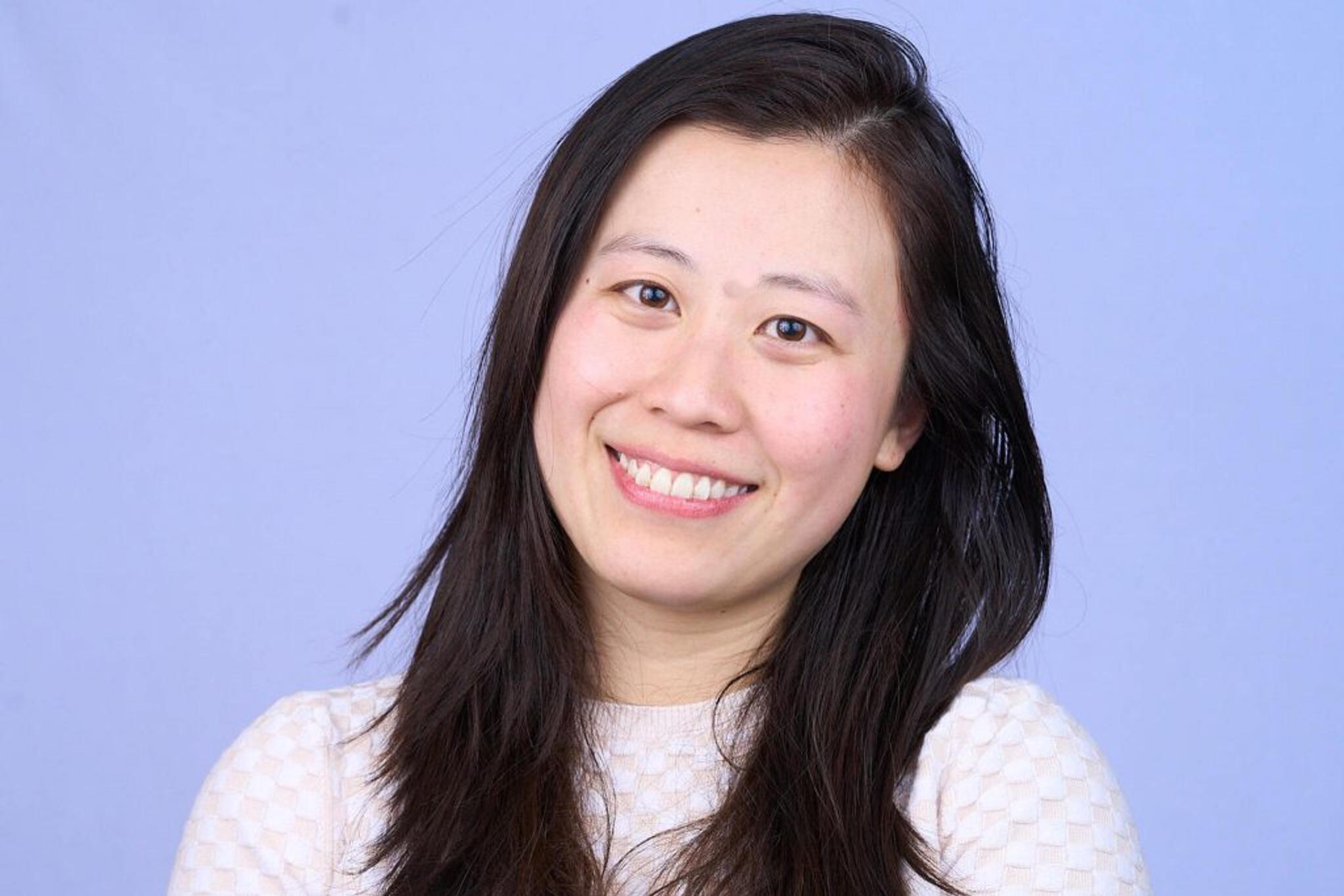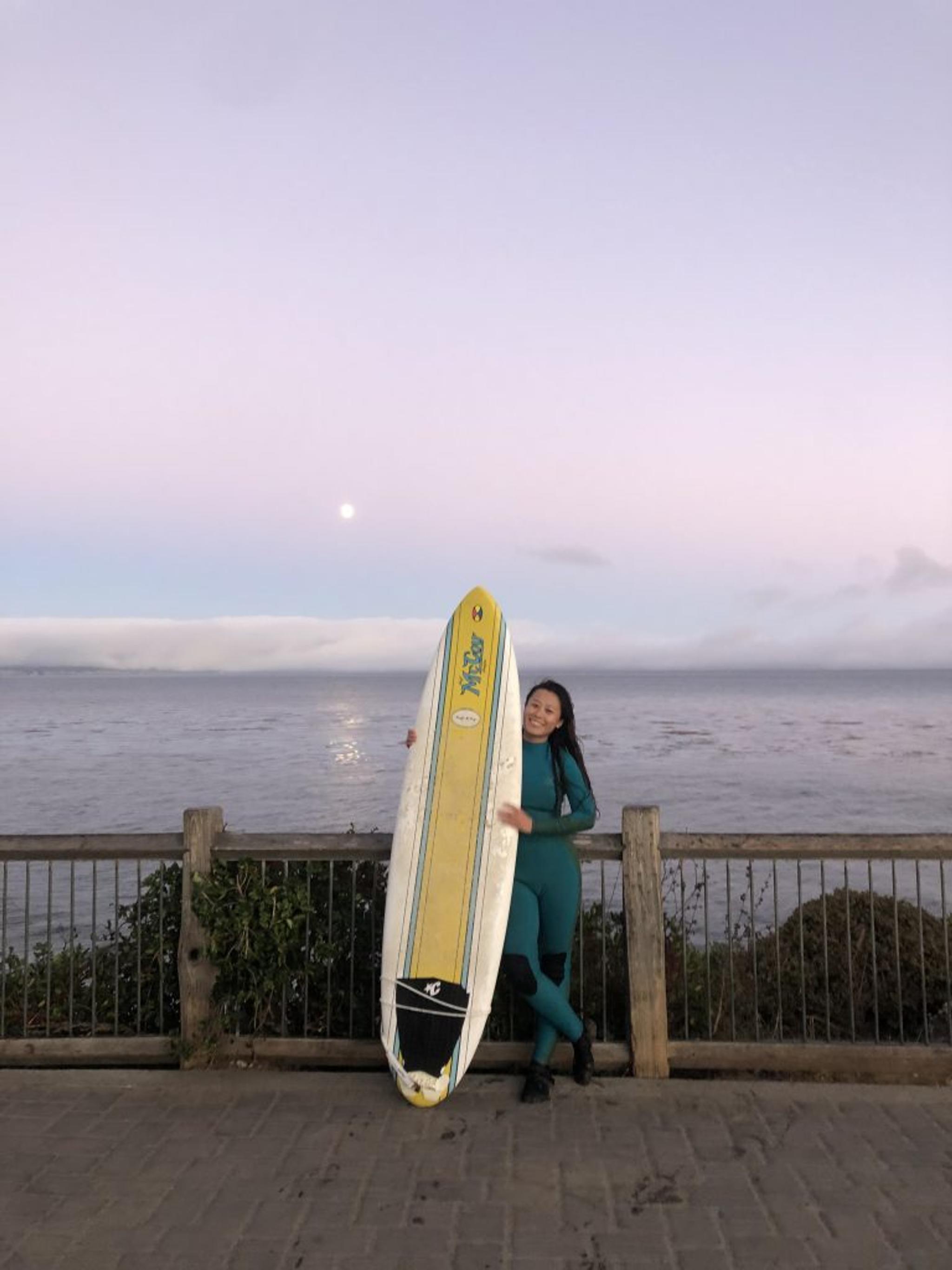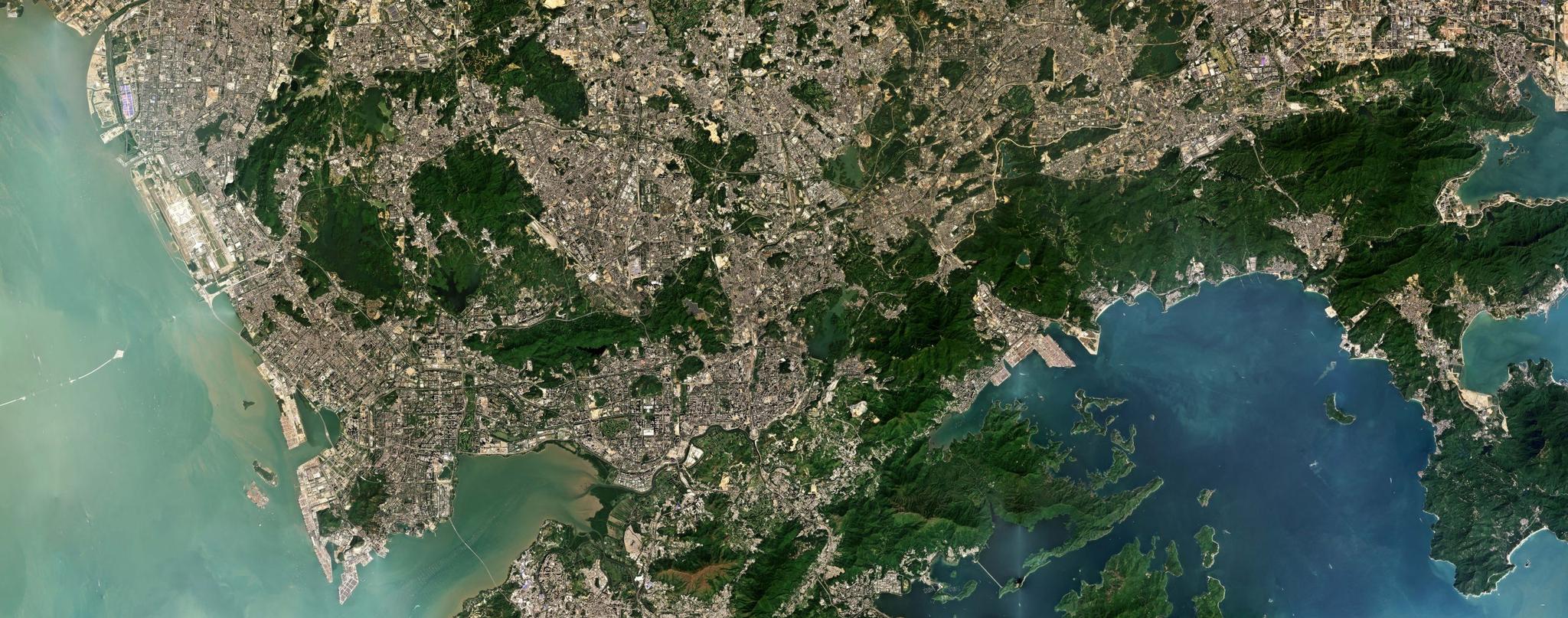Representation, Surfing, and the Stars: International Belonging at Planet with Lydia Lihui Zhang
“I remember that I was eighteen years old when I happened to look up at the night sky and really see the stars. I realized that I didn’t really know why they shined,” said Lydia Zhang, speaking with a tone of awe in her voice. “It was literally the first day I started college in the United States, and it was also the first time I noticed the blinking, the twinkle. I had never thought about studying astronomy before, and honestly, that just got me hooked. I signed up for an Astronomy 101 course, and I totally fell in love with it.”

Lydia Lihui Zhang
Lydia works in Market Development at Planet’s San Francisco office. She originally grew up in Shenzhen, China with an interest in international affairs and economics. At eighteen, she wanted to see the world and decided to move to the United States to pursue her degree at Smith College. What she didn’t expect was to fall in love with space along the way. In the very first few weeks of her undergraduate degree, she became entranced with the night sky.
While in college, Lydia found herself being pulled in seemingly polar directions through two passions. “I was initially interested in international relations, econ, and governance, but it was so frustrating to learn deeper about human history and realize how we were always in conflicts. To an extent, I wanted to escape. I wanted to go to a place where there were no humans, and hence no conflict. Astronomy was my refuge, especially in the beginning of college,” Lydia explained, sharing how she added Astronomy as a second major alongside her Economics degree.
But Lydia’s two passions collided in her third year of college in an enthralling way. She had the opportunity to study abroad at the International Space University (ISU, where Planet’s co-founders Will & Robbie also both spent some time) with an interdisciplinary curriculum focused on everything in space, from the sciences to the politics and economics of the industry. “Here, I learned more about the space sector, and I realized everything is connected in this world. I wanted to choose Astronomy because I had assumed there were no humans, but I learned that in space, there is still conflict, policy, and all of the human societal elements.” Rather than pull away though, Lydia decided to dive deeper.
After graduating, she enrolled in a master’s degree at MIT focused on the intersection of technology and space policy. She looked at open innovation in space, space collaboration mechanisms, and US-China’s space policies. She knew she wanted to work in the sector, but also saw that it was hard for an international student to find opportunity in this industry without existing citizenship. She feared that she was falling in love with the cross sections of space, technology, and economics, but would graduate without prospects. However, she eventually found a place of Belonging at Planet.
“What Belonging means to me, or what I want to practice as Belonging is actually ‘taking the extra step.’ Planet was started by international founders and the company took that extra step to understand the policy of how to make it possible for international employees to join. Planet went through the journey to allow people like me, or people with different backgrounds, to still be able to share their passion and feel included. So, this is major for how I think about Belonging at Planet,” Lydia expressed.
“The other part of Belonging at Planet, is that during external meetings, when I show up as an Asian female, and oftentimes, the most junior person in the room, I feel very respected. My Planeteer colleagues have taken the extra step and carved out the space for me in those big meetings to say, ‘Hey Lydia, what do you think?’ It’s really helped me go in naturally and be able to contribute right away.”
Lydia began as an intern at Planet in 2020 while she was a student, and she later joined full-time in Market Development in 2022. “There are two things that drove me to Market Development: One, the people; and the other is innovation.” Lydia explained that for her, Market Development is about testing hypotheses and asking open questions, such as, ‘How can the financial sector use satellite data?' (her internship topic). It’s an exploratory research process, done through extensive human interaction and data validation. It helps identify how markets are changing and discover new opportunities. “For example, just in the sustainable financial sector, there's opportunities to leverage Planet data for global ESG initiatives, climate risk, and carbon markets,” she explained, highlighting these relatively new economic systems.
“Going back to how everything is connected, I had that period where I didn’t want to interact with humans, and now, I want to talk a lot with humans and learn how space can help their lives. I think my interaction with Planet at that time of my internship helped me refocus and almost turn 180 degrees about why I care about space. I feel a lot more meaning in what I do once I see how a seemingly far concept - space - can play a concrete role in our society. I’m a space nerd who cares about the Earth more.”

Lydia with her favorite board at Santa Cruz, photo credit: Zenny Zhang
Lydia has also elegantly weaved her enthusiasm for space and nature into her personal life here in California. “I love surfing. I really love living in the Bay Area where Santa Cruz is just a drive away. I go almost every weekend. Surfing is a great sport for putting yourself out there and feeling respectful for the power of nature, and totally surrendering to it when you get wiped out. The best thing is to relax and just let the waves take you. It’s taught me a lot about acceptance, and in that time, it has allowed me to slow down and reflect, and feel small. It’s the same feeling that I feel when I am doing astronomy. How small I am. That gives me awe.”
Living in the Bay Area has also allowed Lydia to explore a new culture while still sharing and connecting with her Chinese roots. “There’s a deep history of Chinese immigration in SF, and a lot of people here are actually from the coastal side of China - exactly where I am from, so being able to walk into a Dim Sum restaurant and order food in Cantonese has been really nice. And being able to see a lot of activities around cultural identities in this area has been really inspiring too.”
Celebrating Asian American and Pacific Islander (AAPI) Heritage Month, last month, was personally meaningful to Lydia. “For any expats living in a different culture, there’s this innate responsibility that you are here to represent your culture and trying to be that bridge. This month, I am being more intentional about doing that. As an Asian, a big part of my culture is sharing, so I’m really grateful for this opportunity to share about the food, the drinks (boba!), the movies, to just share who we are underneath the different labels and cultural ideas, and to connect at a new level,” she explained.
“I find the month to be interesting, particularly in the U.S. On the one hand, we’ve had the mainstream spotlights. Like in Hollywood, there’s more Asian representation than ever. I feel like we’re coming to a high-tide where there is a lot more Asian American casting, and yet at the same time, we have some of the worst recent racial-based hate in the country. There’s a contrast between the public life and the private life of being Asian in the U.S. right now. I feel quite split sometimes. So, my message for my Asian and non-Asian friends is to acknowledge the things that might be co-existing at the same time, and if you can, check-in on your friends and see how they are doing.”
Lydia’s dream for the future is to increase representation and diversity in the global space sector. “Historically, we haven’t seen an equal global representation in space at all. So, there’s a space art project that I started with my friends at MIT called HUMANS (Humanity United with MIT Art and Nanotechnology in Space). “My co-founder and I shared this feeling of being international students and worrying about what we could do in the space sector after graduating. Inspired by the Golden Record, we launched a global open call, asking, ‘What does space mean to you and to humanity?’ We encouraged answers from individuals in their native languages, hoping to collect and tell a story of Earth to humans ourselves as opposed to aliens/any spacefarers (that the Golden Recorded intended.) We actually received thousands of answers in over 64 unique languages!” said Lydia with enthusiasm.
“Our two-person effort grew into a much larger team in the past three years. In May, we launched our 6-inch nano-etched wafer with astronaut John Shoffner on board the Axiom-2 mission, and just two weeks ago, we held a historical livestream from the International Space Station and played those voices, from this, many of the languages were first ever played and represented in space! Later this year, a smaller version will travel to the Moon with the MIT Space Exploration Initiative’s “To The Moon To Stay” program with Lunar Outpost and Intuitive Machines. This project has helped me discover more people like me around the world, across different ages, backgrounds, and cultures. I am glad our project was able to increase representation in space by a little bit, even just symbolically, and I certainly hope to see more concrete changes, like education and perspective changes. It’s now in me to help spread this passion to others, to say, ‘Hey, you don’t have to feel that space is so far away.’”

Ready to Get Started
Connect with a member of our Sales team. We'll help you find the right products and pricing for your needs


